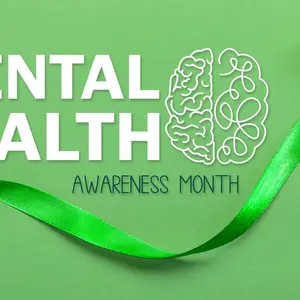

Food, Farming and Nutrition

Food, Farming and Nutrition
6 Ways To Avoid The Afternoon Crash!
The afternoon crash is real!
We all know that sneaking feeling of exhaustion and brain fog that creeps up on us around 3 or 4 pm, sending us straight to the coffee shop, cookie jar, or vending machine for a pick-me-up to get through the last part of the day.
If only there was a way to avoid that and have even, steady energy throughout the entire workday.
Well, guess what? There is!
Here Are Six Simple Ways To Avoid The Afternoon Crash
1 – Eat Protein And Healthy Fat (With A Carb) Within 1 Hour Of Waking Up
My grandmother always said “your body is like a car. If you don’t give it gas, it won’t go.” And while I rolled my eyes when she said this, she was right. We need to feed our cells after fasting all night and the best way to do that (before your coffee) is to make sure you eat a breakfast that contains protein, carbohydrates, and fat even if you are not hungry.
You can do something as simple as an egg cooked in coconut oil with a cassava tortilla, a hard-boiled egg with ¼ avocado in a cassava tortilla, unsweetened oatmeal with collagen and butter, or a smoothie.
2 – Always Have A Complex Carbohydrate With Lunch
If we only eat a salad with protein for lunch or if we eat a processed carbohydrate, our bodies will not have the stamina to keep our blood sugar balanced, which comes from burning our fuel efficiently.
Having a complex carbohydrate like brown rice, quinoa, black peas, lentils, chickpeas, sweet potato, yam, or yucca (cassava) with lunch will lengthen your energy runway to help you avoid the afternoon crash because it will enable your body to slowly release glucose into your system and provide your cells with energy in a steady fashion.
3 – Substitute Stevia, Coconut Sugar, Or Raw Honey For Sugar
Seventy-five percent of the American population has a sugar addiction in some way, shape, or form. This is a sugar addiction that is responsible for decreased productivity, diminished mental acuity, and lagging motivation.
Sugar, or ‘the white stuff' that's in cakes, cookies, muffins, and pasta, requires our body to pull from its own reserves of vitamins, minerals, enzymes, and proteins in order to process it, leaving us nutrient deficient and depleted of our vital energy. Our bodies react to sugar like a drug, hence the crash.
Upgrade your sugar to a lower glycemic alternative that works better in your body. We love dark liquid stevia, coconut sugar, and raw honey as our top three natural sweeteners.
4 – PreEmpt The Crash With Healthy Snacks
Often the best way to keep your blood sugar balanced and your energy levels steady is to make sure you don’t go for very long stretches without eating. By inserting a mid-morning or mid-afternoon snack (or sometimes both) into your routine, you can preempt an energy crash.
5 – Stay Hydrated
Over 50% of routine fatigue can be alleviated with proper hydration. We need enough water to regulate our body temperature, flush toxins, enable our organs to function effectively, hydrate our skin, and of our course, to keep our energy high.
If you have dark urine, muscle cramps, dizziness, nausea or fatigue, increase your water intake to at least one liter (or 34 ounces) for every 50lbs of body weight.
6 – Take An Elevated 8-Minute Power Nap
This is a secret military trick from Navy Seals to help them refresh and stay alert when sleep has been scarce.
Get yourself a sleep mask. Then, lay on the floor with your legs up on the wall or a couch (to elevate your legs) to get more circulation. Set your alarm for 8 minutes. Apparently, that is the shortest (magic) number of minutes to rest in order to get a brain reset. I often do this on long filming days and it works wonders.
If you cannot find a place to lay down, opt for exercise instead and move your body for 8 minutes—enough to work up some heat and get your circulation moving.
If you want more tips to keep your blood sugar balanced so you can eat for abundant energy, take our free adrenal recode mini course here.
Do you often get an afternoon crash? Which tips will you take from this post and which tips do you have to share about what works for you?
This article is reprinted with permission from the author, Christa Orecchio, CN, HHC, and first appeared in The Whole Journey.


 By
By






